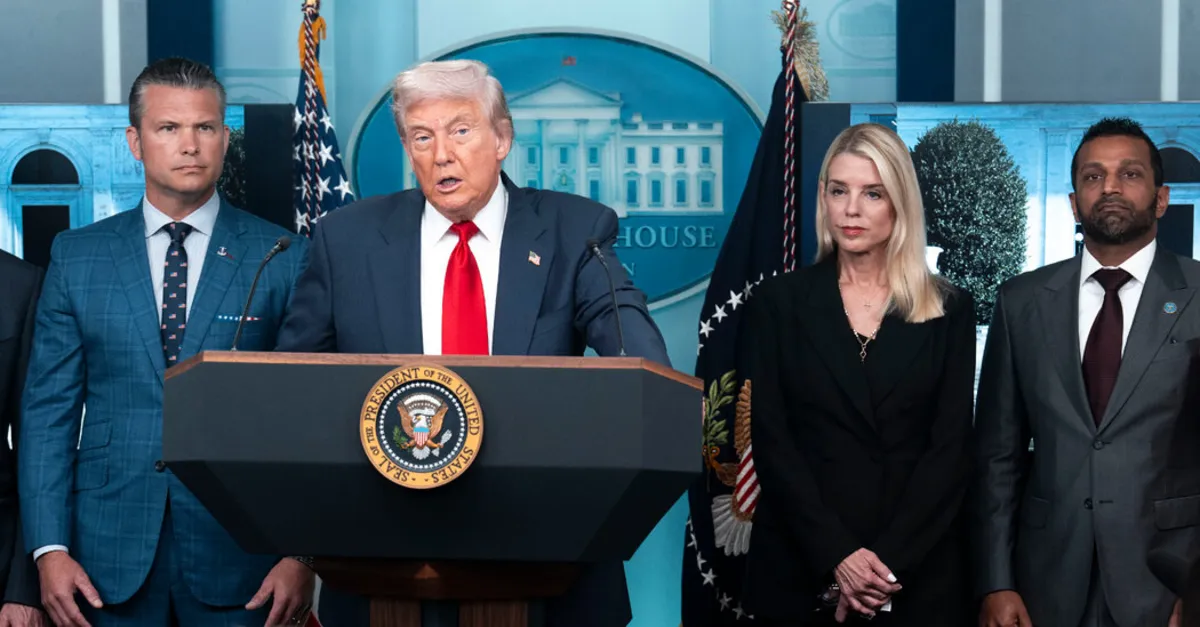
On Monday, President Donald Trump announced a dramatic move to take federal control of the police force in the nation’s capital for a period of 30 days. This decision also includes the mobilization of 800 National Guard troops to combat what he described as a city overrun with “bloodthirsty criminals.” This statement comes despite recent statistics indicating that crime rates in Washington D.C. are on the decline.
During a lengthy 78-minute news conference, President Trump, flanked by various members of his cabinet, presented his plan at the White House briefing room. He stated his intention not only to address crime but also to clear out the capital's homeless population. However, he did not provide specifics on how this would be accomplished or where the displaced individuals would go.
Using crime statistics as a backdrop, President Trump criticized the murder rates in Washington compared to other major global cities. He failed to acknowledge that violent crime has actually decreased recently in the capital. The Metropolitan Police Department reported a 35 percent drop in violent crime from 2023 to 2024, despite an initial surge in crime rates earlier in the year.
In response to the president's announcement, local officials expressed their concerns. Washington's Mayor, Muriel Bowser, labeled Trump’s actions as “unsettling and unprecedented” but not unexpected. “There’s nobody here and certainly nobody who works for me who wants to tolerate any level of crime,” Bowser stated, emphasizing the city's ongoing efforts to combat crime.
President Trump's federal takeover relies on a provision from the D.C. Home Rule Act, a law enacted by Congress in 1973 that established local control over Washington D.C. This law grants the president the authority to temporarily assume control of the Metropolitan Police Department. A White House official confirmed that this takeover would last for 30 days, as stipulated by the law.
As details of the operational plan were still being finalized, small groups of federal agents had already begun limited patrols over the weekend. The plan aims to deploy around 500 federal law enforcement officers from various agencies, including the F.B.I., U.S. Marshals, and the Drug Enforcement Administration, to assist local police in patrol and support roles.
A significant challenge arises from the fact that federal agents do not possess the same authority as local police officers to arrest individuals for minor offenses. Current guidance suggests that federal agents can only detain suspects until local police can respond. These implementation details were notably absent during Trump’s briefing.
During his address, President Trump made several remarks that seemed to shift the narrative surrounding crime in Washington. He has faced criticism for his earlier decisions, such as pardoning individuals involved in the January 6 Capitol riots and deploying thousands of National Guard troops to manage mostly peaceful protests for racial justice in 2020.
As he called various cabinet members to the lectern, Interior Secretary Doug Burgum mentioned ongoing efforts to patrol federal parkland and remove homeless encampments. Meanwhile, Defense Secretary Pete Hegseth noted that 800 National Guard troops would soon be deployed to Washington.
Trump’s comments also hinted at potential federal interventions in other cities facing crime issues. He expressed intentions to evaluate conditions in cities like New York and Chicago, suggesting that federal control could be extended if necessary. However, the legal grounds for such actions remain uncertain.
Critics argue that President Trump shares responsibility for rising crime rates in Washington. Ankit Jain, a shadow senator for the District of Columbia, pointed to staffing shortages in the U.S. attorney’s office and a lack of judges as contributing factors to the city’s crime problems.
As the situation continues to develop, the implications of President Trump's federal takeover of Washington's police force will unfold, raising questions about law enforcement, public safety, and community trust in the nation’s capital.